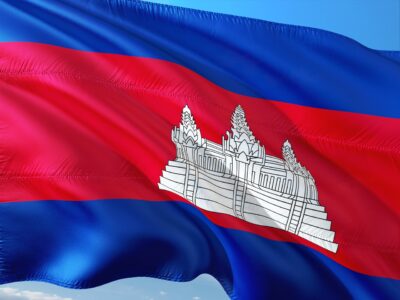02-09-2024
Katherine Youssouf and Noa-Lynn Gilliaert
Bangladesh Genocide Recognition Campaign
Global Human Rights Defense
“It is a historic occasion,” said Dr. Muhammad Yunus, Bangladesh’s only Nobel Laureate and the current head of its interim government, during the signing of the International Convention for the Protection of All Persons from Enforced Disappearance of the United Nations (UN) on August 29th, 2024. The Convention, adopted by the UN’s General Assembly in 2006, has been signed by 98 countries and aims to prevent enforced disappearances by state practice. Bangladesh signed the Convention at the United Nations headquarters in New York, affirming its commitment to addressing the issue of enforced disappearances within its borders and to upholding its international human rights obligations.
The treaty signing comes after years of reports from human rights organisations of enforced disappearances by the former Bangladeshi government. According to data collected by Odhikar, an NGO working for justice for the victims of enforced disappearances, between January 2009 and June 2024, at least 709 people were subjected to enforced disappearances by Bangladeshi law enforcement agencies and security forces. In its 2023 report, Odhikar explains that during the time surrounding the 2014, 2018, and 2024 elections, “the government created a fearful atmosphere in the country by disappearing opposition leaders and activists. . . us[ing] enforced disappearance as a tool to suppress political movements and silence the dissenting voice. . . .” Odhikar reports that most disappeared persons were picked up by men claiming to be members of the Detective Branch of Police and that the families of disappeared persons face surveillance, harassment, and threats from members of law enforcement and intelligence agencies. Nearly 100 people are still missing, and many held unlawfully in custody have been found to have been tortured or killed. Unfortunately, allegations of torture in Bangladesh are still rarely investigated or prosecuted.
Nevertheless, Bangladesh’s signing of the Convention is a notable, positive indication of its commitment to acceding to international human rights standards on enforced disappearances. Under the Convention, Bangladesh must criminalise enforced disappearances, ensure justice for victims and their families, and provide protection for individuals from becoming victims of such practices. The government must also take appropriate measures to investigate alleged disappearances and bring those responsible to justice. In advance of its signing, the interim government established a commission to investigate cases of enforced disappearances since 2009. Historically, the Bangladeshi government has refused to take action to investigate and prosecute enforced disappearances and has declined offers of help from the UN to establish a specialised mechanism to investigate allegations of enforced disappearances in line with international standards. Signing the Convention may lay the groundwork for ensuring that future investigatory and enforcement mechanisms, including tribunals and commissions, are not only created, but operable, authoritative, and effective.
Bangladesh’s accession to the Convention will hopefully also pave the way for reforms in law enforcement and the justice system to prevent human rights violations, many of which–including torture, inhumane treatment, and suppression of free speech –were committed alongside enforced disappearances. While various human rights groups and international organisations have reacted positively to the signing, they also recognise that accession to the treaty is not enough. The real impact depends on the effective implementation of its provisions and the government’s willingness to confront and resolve past and present allegations of enforced disappearances.
Sources and further readings:
Amnesty International. (2024, August 30). Bangladesh: Signing of Convention on Enforced Disappearances is a much welcome first step. https://www.amnesty.org/en/latest/news/2024/ 08/bangladesh-signing-of-convention-on-enforced-disappearances-is-a-much-welcome-first-step/#:~:text=According%20to%20the%20Bangladeshi%20NGO,of%20enforced%20disappearances%20were%20reported. Accessed 02/09.2024.
Associated Press. (2024, January 8). Bangladesh’s Hasina signs UN convention against enforced disappearances. https://apnews.com/article/hasina-yunus-bangladesh-enforced- disappearance-convention-418b7048c649bc541e64d33869876c84. Accessed 02/09.2024.
Human Rights Watch. (2024). Bangladesh. In World report 2024. https://www.hrw.org/world-report/2024/country-chapters/bangladesh. Accessed 02/09.2024.
Ministry of Foreign Affairs, Bangladesh. (2024). Press release: Bangladesh signs the International Enforced Disappearance Treaty. https://www.mofa.gov.bd. Accessed 02/09.2024.
Odhikar. (2024). Annual report 2023. World Organisation Against Torture.
Office of the United Nations High Commissioner for Human Rights. (n.d.). International convention for the protection of all persons from enforced disappearance. https://www.ohchr.org/en/instruments-mechanisms/instruments/international-convention-protection-all-persons-enforced. Accessed 02/09.2024.
Shahriar, A. (2021, January 5). Jonny’s custodial death case: Lessons learned from the verdict. The Daily Star. https://www.thedailystar.net/law-our-rights/news/jonnys-custodial-death-case-lessons-learned-the-verdict-1969413. Accessed 02/09.2024.







Comments